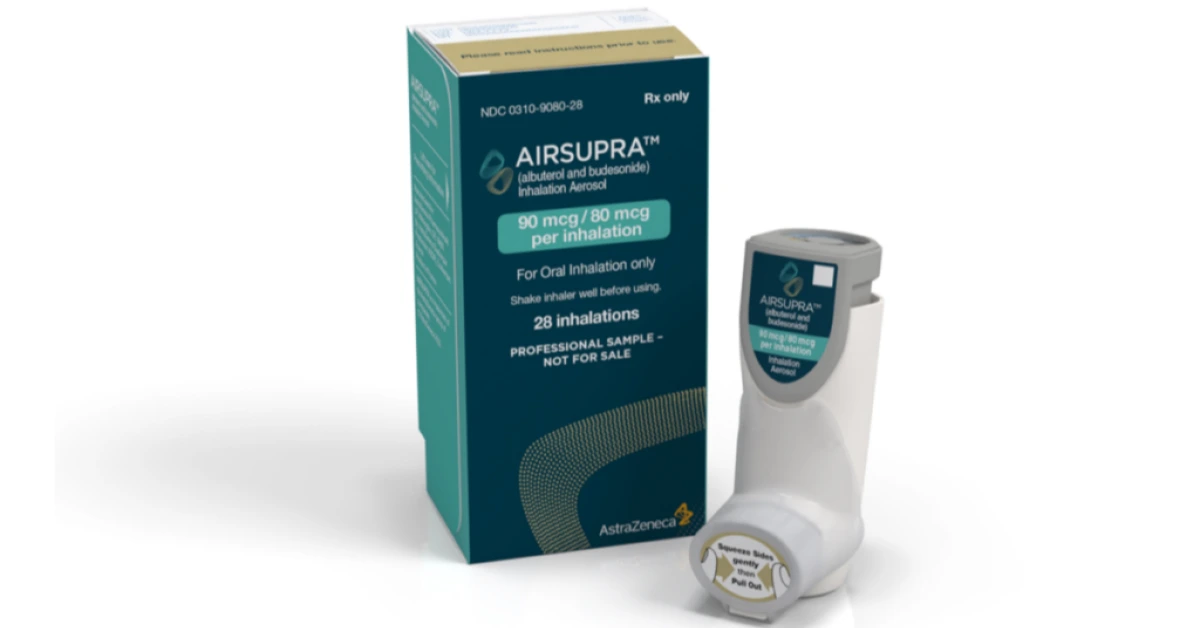
UK – AstraZeneca is advancing efforts to broaden the use of its asthma rescue treatment, Airsupra (albuterol/budesonide), by targeting a wider age range.
New findings from the Phase IIIb BATURA trial, presented at the American Thoracic Society (ATS) annual meeting and published in the New England Journal of Medicine, highlight the therapy’s potential as a new standard of care.
Originally approved by the FDA in 2023 for adult asthma patients, Airsupra was previously denied approval for younger age groups.
Now, AstraZeneca is revisiting that goal with compelling new data. In the latest results, Airsupra significantly reduced the risk of severe asthma attacks by 47% compared to albuterol alone.
Patients also saw a 63% reduction in exposure to systemic corticosteroids, an important benefit for long-term health.
This inhaled therapy combines a fast-acting bronchodilator (albuterol) with an anti-inflammatory corticosteroid (budesonide) in a single, easy-to-use inhaler.
The safety profile remained consistent with earlier studies, with no major differences between treatment groups.
According to Sharon Barr, head of biopharmaceuticals R&D at AstraZeneca, these results support updated asthma care strategies that include anti-inflammatory rescue options, aligning with guidelines from the Global Initiative for Asthma (GINA).
Developed in partnership with Avillion, Airsupra is now being positioned for broader use –possibly including adolescents – as AstraZeneca builds on the therapy’s momentum.
With peak sales projected to reach US $1.8 billion, the company hopes this new data will help secure approval for a younger population and reinforce Airsupra’s role in asthma management.
XRP HEALTHCARE L.L.C | License Number: 2312867.01 | Dubai | © Copyright 2025 | All Rights Reserved